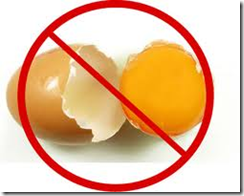 As a prospective vegan, you may be wondering exactly why vegans make the dietary choices they make. And you may also be hesitant to adopt these choices until you yourself understand and accept them.
As a prospective vegan, you may be wondering exactly why vegans make the dietary choices they make. And you may also be hesitant to adopt these choices until you yourself understand and accept them.
In this article, We will explain the two major vegetarian positions on eating eggs to help you make your decision.
The sub-category of vegetarian I will cover, ovo-vegetarians, accept the normal consumption of eggs because they do not believe that doing so conflicts with an ethical vegetarian diet. They do not see eggs as living things and subsequently do not make the connection between consuming eggs and causing animal suffering or death.
In addition to this, many ovo-vegetarians see complete veganism as limiting their options unnecessarily, especially when eggs are an excellent source of complete protein and a viable nutritional alternative to meat.
Many vegetarians who do consume eggs opt for "free range" eggs over normal or "battery" eggs. This is usually out of ethical concern for the treatment of egg-laying hens.
Vegans, by contrast, do not consume eggs normally and generally oppose the institution altogether. They argue that purchasing "battery hen" eggs supports an institution that cages up to nine birds together, debeaks them, and forces them to continually lay eggs until they are calcium -depleted and on the verge of death, at which point, they are slaughtered.
In addition, vegans also go further to disapprove of "free range" eggs, which do not require a hen to be caged. They argue that most free range hens are actually packed into houses, where they have minimal access to the outside.
They also note that even producing "free range" eggs requires having fertile eggs, half of which will hatch into male chicks, which will then be slaughtered after birth or fed to a certain weight only to be culled.
In addition to these two positions, there are also vegetarians who don't consume eggs for other reasons. Some of these vegetarians don't eat eggs because they are high in cholesterol; and others do not consume them because they believe that the animal farming institution contributes to environmental degradation.
Take some time to determine where you stand, ethically and nutritionally, and then make your decision from there.
Comments
Post a Comment